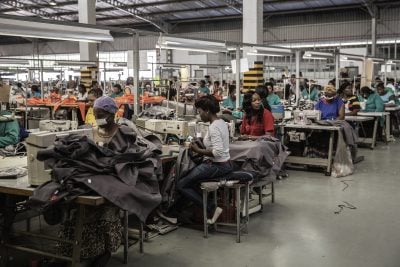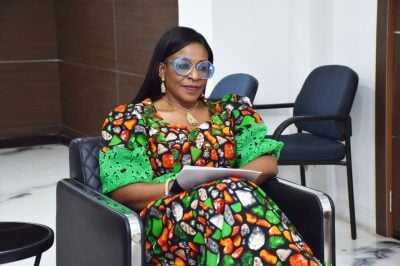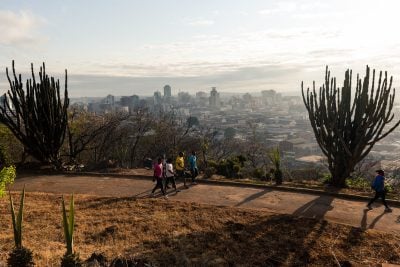François Hollande served as president of France from 2012 to 2017, during which time he sent troops to Mali and the Central African Republic to assist with the security situation with the approval of the UN Security Council. Since 2017 he has been head of “La France s’engage” foundation, which identifies and supports socially useful initiatives.
His latest book, Bouleversements. Pour comprendre la nouvelle donne mondiale, published in French by Stock, examines the consequences of the Russian invasion of Ukraine for Europe and the world. The former president met with Hichem ben Yaïche and Nicolas Bouchet to discuss the major themes emerging from the book.

African Business: You give your diagnosis and your vision of the world in your latest book. How do you see the options for ending the conflict in Ukraine?
François Hollande: I wrote this book when the war in Ukraine had just started. Seven months later, it is still going on, and there is no way of knowing how it can be resolved and stopped.
I see two options. The first is that Russia would manage to make the territories conquered by its army safe and ask for a negotiation in the same way that Minsk was a negotiation after the amputation of Ukrainian territories that had not been annexed. This is what Vladimir Putin wants and this is why he committed this brutal act, in violation of all international rules, of annexing separatist territories.
There is a second option: the aid that the West is giving to Ukraine, the courage of the Ukrainians, the sanctions imposed on Russia and the political isolation of Vladimir Putin lead him to give up his operation and return to the borders that were Ukraine’s before 2014.
Quite frankly, I prefer this second option.
Not just for the sake of Ukraine’s sovereignty or my idea of democracy and world order. But because if a power grab like Vladimir Putin’s invasion of Ukraine became permissible, then the whole planet would be destabilised.
China itself might think it can use force. Turkey might also be tempted to do so in northern Syria. I will not mention all the countries that have borders to rectify or territorial ambitions! I am also concerned about what is happening in Ethiopia, the Democratic Republic of Congo, and of course the Sahel.
But this is an unprecedented situation that could lead to something very serious. Do you believe that the situation could get worse?
There is always a risk of escalation. Vladimir Putin has just mobilised tens of thousands of people sent to the front and the weapons used are increasingly lethal. Could this lead to weapons of mass destruction? At one point, nuclear weapons were brandished, but we must remain wise, if not serene. Everyone knows the rules, and Vladimir Putin more than anyone else, of nuclear deterrence. I do not believe in this hypothesis, but I do not rule it out or underestimate it.
I believe that we will remain in a conventional conflict with increasingly sophisticated weapons and with risks such as those seen in the nuclear power plant in southern Ukraine, where major infrastructures can be destroyed. With serious consequences, whether it is the nuclear power plant, the power stations or the gas pipelines.
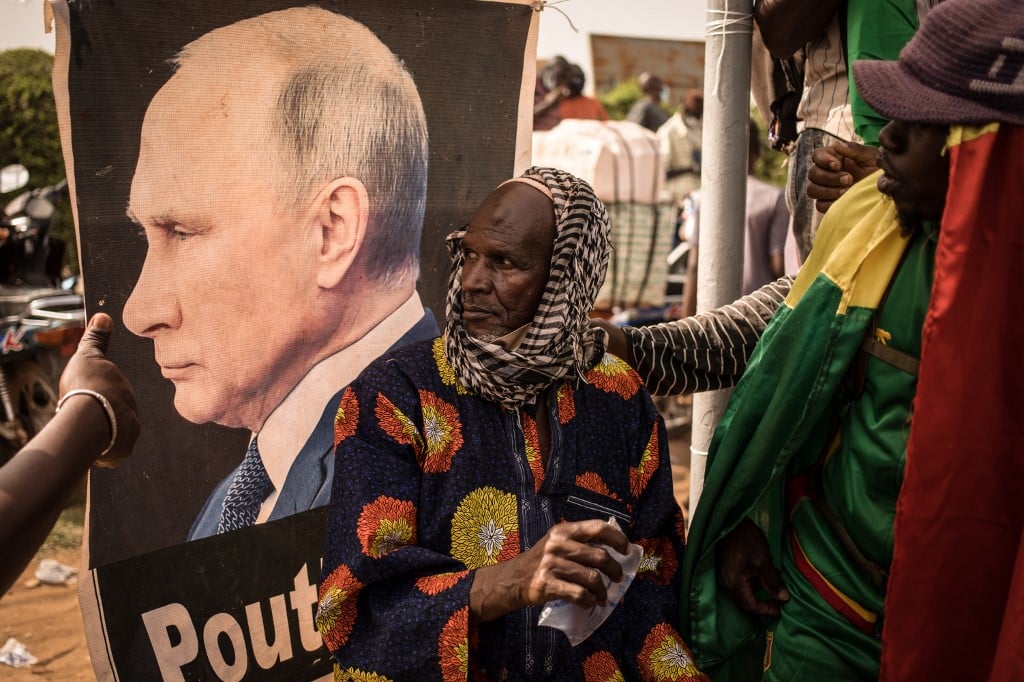
Your book lists a number of problems. With a very personal writing style, you give an experienced man’s vision of the new world we are entering into. How do you see this development?
Many people were stunned by the Russian invasion of Ukraine. And yet these phenomena of building and rebuilding blocs, alliances, and questioning a certain number of international rules have been at work for ten years. The upheavals are not simply those of the last few months, but they have been inscribed through conflicts that have not been adequately resolved. In Afghanistan, Iraq, Syria and Libya, interventions have met with failure.
Two great powers, China and Russia, appear to have formed a bloc. We will see how far this bloc goes and what resistance it is capable of.
New empires have arisen. Iran has the desire to influence the region. Turkey and India are claiming their place in the concert of nations. There is both a logic of blocs that has taken hold and a multipolarisation of the world that makes it much more difficult to govern.
Does France today have the means to outline a vision for itself and its place in the world?
France’s tradition has always been to be an independent nation, capable of pursuing the objectives that it considers best and most useful for the cause of multilateralism. While remaining faithful to its alliances and in particular to the Atlantic Alliance, which has taken on a new place and additional legitimacy. In the face of Russian aggression, it is necessary to reconstitute this organisation.
France is also a leading country in Europe. However, we can see that if Europe has been able to react in a coherent manner to what has happened in Ukraine, and is providing aid to the Ukrainians while managing an energy crisis, it is also riddled with contradictions. France, together with Germany, must be able to take the initiative for a Europe that is much more concentrated within the 27 and capable of carrying out an autonomous defence project, while remaining within the Alliance.
We are seeing a reconstitution of the blocs. Russia relies on China and Iran by using Iranian drones and forms a sort of camp of authoritarian regimes. On the other hand, the United States wants to embrace all nations in Europe and Asia to counter Russia and China. So what is France’s place?
I think that France must take the initiative and say what are the important subjects that must unite us… What are we doing about the climate? What are we doing for the emergence of Africa? What are we offering for the common goods of water, air and sea? It is very important that France does not remain a balancing power between the two blocs, which would not make much sense, but seeks what unites the planet beyond all the difficulties we encounter.
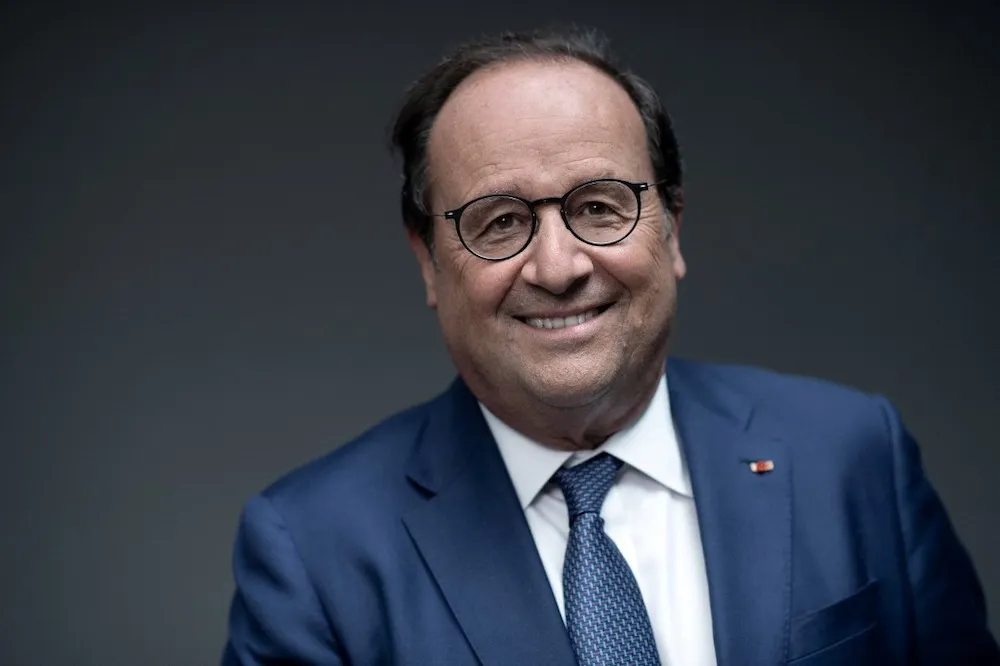
Why do some people have the impression that France is a country in decline?
On the political and military levels, which are sometimes inseparable, France holds its rank. It is a permanent member of the Security Council, has the deterrent force and has shown that it has military capabilities, including in external operations.
Where France is more fragile is on the economic front. In terms of competitiveness and commercial presence, we are far from what Germany can produce. It is also fragile in its internal democracy. A united nation, driven by values and which wants to be an example for the world, is better than having a very strong extreme right, a divided society, social contestation and a difficulty in reconstituting the left and the right, the political families which have long structured our democracy. France is less challenged by its external positions than by its internal fragility.
How do you see Africa today, and in particular the Sahel, which is on fire and puts the world in danger?
I realised the danger of this reality as early as 2013 because I had responded to the appeal made by the heads of state of West Africa to come to the aid of their people. This has worsened for several reasons. First, Mali did not organise itself to provide security through its own armed forces. The Africans have not been able – and this was the spirit of the G5 Sahel – to form an African army that could have taken over from France. The United Nations missions, even if they are often and painfully hit, are not as effective as expected.
When, for years, a presence persists of jihadist groups that martyr the population, there comes a time when there is room for propaganda. Who has been agitating this propaganda? Russia, as we see in Mali, Burkina Faso, the Central African Republic and at one point in Niger. These are extremely well organised networks with partners of the Russian regime, the Wagner group. They put pressure on the population and play on the reflex of refusing colonisation.
I want to tell our African friends, who know me, that when I wanted France to intervene in Mali, it was not to seek any economic, financial or political advantage. It was because I responded to this duty of solidarity. French soldiers did not die for gold mines or for taking resources from Mali or neighbouring countries. They died because they wanted to support populations that were victims of terrorism.
How do we do this now? The succession of coups is serious. Two in Mali, two in Burkina Faso, and each time for interests linked to Russia. I see a form of colonial spirit taking place, with a clear desire to take resources from these countries, even if it means letting terrorism and jihadism flourish. In Mali as well as in Burkina Faso, jihadism is killing civilian populations and massacring the innocent.
So how can we reinvent the Africa-France relationship?
France is doing a lot, with the French Development Agency, with policies that can also provide direct aid or lighten the burden of debt. What is needed is a long, trusting relationship, not just with the States but with civil societies that are much more lively and active than they are often presented in Europe, with businesses, with men and women of culture… How can we ignore the liveliness of the African population?
On the major issue of climate change, and since Cop27 in Sharm el-Sheikh will open in a few days, we must remember the promise made in Paris at Cop21: to transfer 100 billion dollars to the countries that suffer the most from the consequences of climate change. These countries must anticipate tomorrow’s investments and it is very important that this promise be honoured. France must be able to lead the way in what can be a programme to combat global warming that is also a development programme.
How can we rebuild a new world order in a context of crisis of multilateralism?
The ideal of the post-World War II era, despite the blocs and a decolonisation that was slow in coming, was to be able, through the Security Council, to settle the world’s conflicts and, through the General Assembly, to bring about common objectives. This ambition has not been completely abandoned and we owe it to the UN system to have prevented and avoided certain conflicts. In the same way, there have fortunately been the SDGs (Sustainable Development Goals) and the fight against global warming.
Today, it is clear that the UN system is blocked. The use of vetoes in the Security Council and its very composition does not reflect the reality of the planet. It is still the victorious countries of the Second World War that have permanent membership. The United Nations must be reformed, and to do so we need the agreement of these permanent members, who will of course not go along with it. This is not possible unless pressure on the future balance of power is brought to bear after the war in Ukraine.
We are all concerned by the climate, the question of water, migration and health issues, as the pandemic has shown. On these major issues that bring us all together, whether we are African, European, Asian or Latin American. All the multilateral institutions that have proved their worth, such as the WHO, UNESCO or the major climate organisations, must have more strength and resources.
I am also thinking of the issue of famine and malnutrition, which in Africa are taking on an extra dimension because of the war in Ukraine. This is a major issue that should mobilise us all. But it will remain blocked as long as we have these conflicts between powers. It is France’s role to build large coalitions so that these multilateral institutions can take on a new dimension.
You devote a chapter to “defining a foreign policy for France”. In this respect, how can we build this relationship with Africa, the Mediterranean and the Maghreb?
It has to do with France’s geographical position. France is concerned by what is happening in the East, but it looks to the South. What is happening in Ukraine should not make us forget the reality of the migratory crisis in the Mediterranean, the relationship with the Maghreb where our closest friends are, and with Africa in general.
With the Maghreb, we are unfortunately aware of the divisions and the specific situations of each of the countries. But there are points in common. It is a French-speaking population that has high levels of education and is ready to participate in common projects at all levels. The Maghreb is an essential element for France, both in the relationship with Africa and also for our common points.
The issue of visas seems to me to be important. We needed to have these frequent exchanges with a part of the population that came for short stays. The Maghreb did not understand this policy, even if everyone knows the questions of illegal immigration and deportation that must be settled. Secondly, there must be much more joint investment with all countries. This calls for partnerships on the part of French companies, which are slow in coming.
Finally, there is the question of raw materials, with gas and oil in Algeria, with phosphate in Morocco… We can make real changes. I believe that this relationship lacks development projects, whereas there should be many. We have the good fortune to have common cultures between a population that lives in France and one that lives in the Maghreb..
What is your personal assessment of Emmanuel Macron’s policy? Is he on the right track?
I think that Emmanuel Macron wanted to address civil society and not just the States, and this was a good approach; but it turns out that politics is also done through the States. It is important for civil society to get moving, but it is necessary to build personal and political relations with the states. This is not so simple, I agree, when we are faced with so much instability and movement, with a succession of coups in Mali, Guinea, Chad and Burkina Faso. Even though our objective was to stabilise, to democratise and to ensure that civil society takes its rightful place.
This goes far beyond the question of who is running the country, but we must call for a return to forms of democracy and not consider extensive cooperation with regimes that have come in by force.
To conclude, what is the aim of your foundation and how do you project yourself through its action?
There are many initiatives and commitments from civil society, associations and the social and solidarity economy that invent, innovate and carry out projects. Why not also have this vocation for Africa, where so much is actually happening? Economically, of course, but also in terms of social innovation and the use of technology. It is absolutely necessary to support these innovations, to raise the means and this is where it is sometimes the most complicated. But companies are ready to invest in supporting them.
You seem to be in the position of someone who likes to give his vision of the world. Do you have a desire to have an influence in terms of advice or intermediation to enhance this experience of power?
I don’t think that former presidents can become diplomatic agents at the service of their country or even the world! In a way, their time is up in terms of action, unless they want to return to political life…
On the other hand, and I consider that it is my own duty, they can pass on their own experience. To say what they saw when they were in charge, what they can anticipate, and provide ideas. Then it’s up to those in power to take them up and for citizens to take an interest.
This article is a translation of an interview that originally appeared in French on our sister website, New African: Le Magazine de l’Afrique.
Want to continue reading? Subscribe today.
You've read all your free articles for this month! Subscribe now to enjoy full access to our content.
Digital Monthly
£8.00 / month
Receive full unlimited access to our articles, opinions, podcasts and more.
Digital Yearly
£70.00 / year
Our best value offer - save £26 and gain access to all of our digital content for an entire year!
 Sign in with Google
Sign in with Google 

